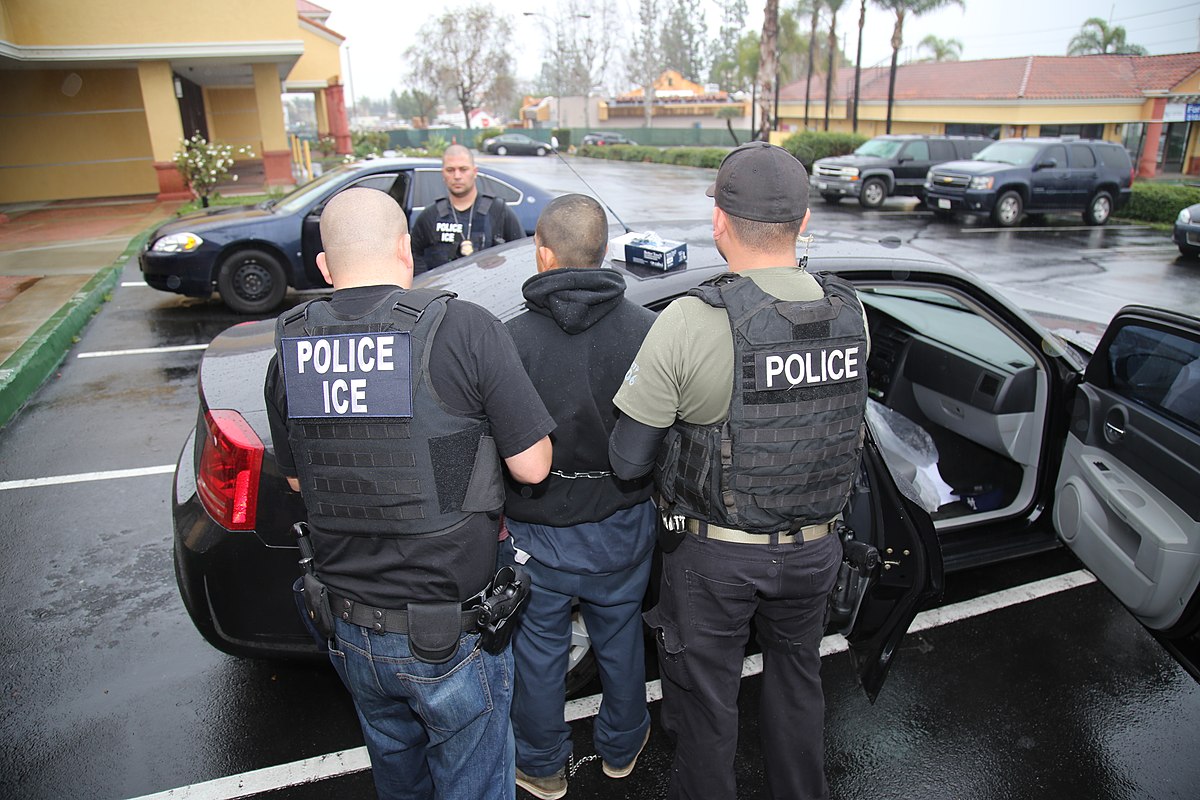- 14 3402-5578
- Rua Hygino Muzy Filho, 737, MARÍLIA - SP
- contato@latinoobservatory.org
 U.S. Immigration and Customs Enforcement
U.S. Immigration and Customs Enforcement
The increase in immigrant arrests has led the US government to look for ways to expand its detention capacity to fulfill the promise of mass deportations made by former President Donald Trump. According to a report by NBC News, Tom Homan, Trump's border policy officer, said that the U.S. Immigration and Customs Enforcement (ICE) needs 100,000 beds to detain immigrants, a number that more than doubles the current capacity. In line with that strategy, Trump ordered the Pentagon and the Department of Homeland Security to prepare 30,000 beds at Guantanamo Bay for those deemed the greatest threat to national security.
Detention facilities, considered the bedrock of the deportation plan, face a reality of varying apprehension numbers. While the Biden administration recorded, in September 2024, an average of 282 daily arrests, recent data indicate that, under Trump's guidelines, this average reached 791 per day, reflecting the guidance to arrest as many people as possible. This effort comes even in the face of a $230 million budget deficit in ICE and without the inclusion of additional resources in the Laken Riley Act, a law that mandates the detention of undocumented immigrants involved in certain crimes.
In addition, Congress has earmarked resources to maintain a daily average of 41,500 inmates, an increase from the previous fiscal year, and the cost per bed is approximately $57,000 per year.
"This was an increase from fiscal year 2023, when Congress provided funding to detain a daily average of 34,000 people, costing about $2.9 billion. The House is in the midst of an attempt to craft a budget bill that would include money for Trump and his crackdown on immigration; congressional Republicans estimated the price tag at about $100 billion".
Historically, the number of immigrants apprehended peaked at 50,000 during Trump's first term but reduced significantly with the arrival of Covid-19. The complex detention network involves federal, state, local, and largely private facilities, highlighting the breadth of the system.
While the Biden administration has tried to expand detention capacity, the Trump administration is already resorting to alternatives, such as using military spaces – for example, the Buckley Space Force Base in Colorado – to process immigrants with criminal records. That stance has prompted the Justice Department to investigate local officials who refuse to cooperate with federal immigration enforcement, a move that contrasts with the stance of some states, such as Illinois and New Jersey, that have limited or banned new construction of detention centers.
Persistent criticism points to the poor conditions of these centers, which include lack of access to legal assistance, insufficient medical care and structural problems, such as those observed in the section of Guantánamo Bay dedicated to detainees intercepted at sea. Accounts from former inmates and staff describe run-down facilities, where families with young children are housed with single adults, and where communication with lawyers is severely restricted. Migrants often remain in these conditions for long periods, waiting for a third country to accept their repatriation, a situation aggravated by the refusal of some countries, such as Cuba and Venezuela, according to NBC.











